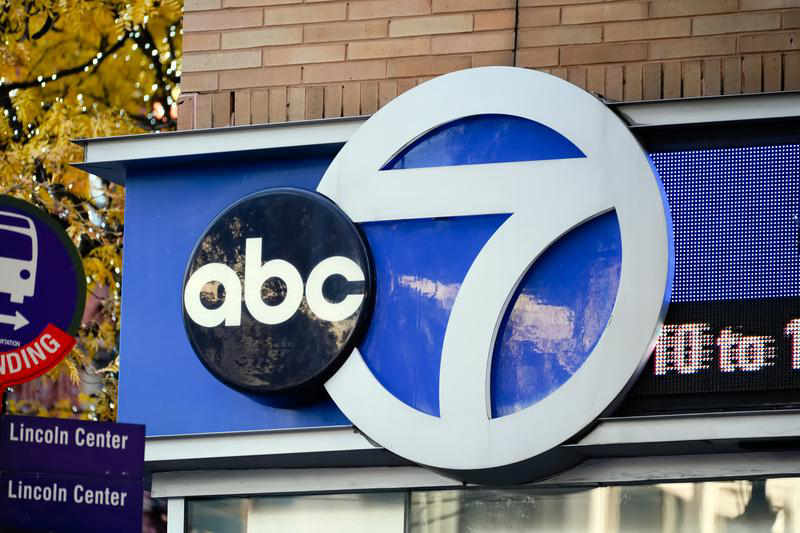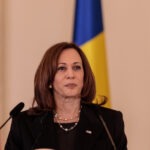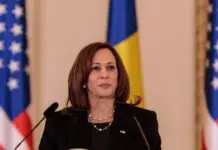President Donald Trump had a contentious discussion with ABC News journalist Terry Moran during an interview marking his first 100 days back in office. Trump challenged Moran’s credibility and dismissed questions on key issues.
The interview, aired as a primetime special, featured repeated clashes between Trump and Moran, especially concerning Kilmar Abrego Garcia, a Maryland resident deported to El Salvador despite a court order preventing his deportation.
Moran questioned Trump on the disputed claims that Abrego Garcia was a member of the MS-13 gang. Trump referred to an image he had shared, allegedly showing gang tattoos on Abrego Garcia’s knuckles.
“Wait a minute, wait a minute. He had MS-13 on his knuckles,” Trump insisted during the exchange.
Trump informed Moran that ABC was providing him with a significant opportunity and admitted to selecting him because he was unfamiliar with him. Trump added that Moran was not being “nice” during their discussion.
Moran attempted to discuss other topics, but Trump repeatedly returned to the photograph, urging the journalist to recognize what he considered clear evidence. When Moran suggested the image might be interpreted differently or Photoshopped and tried to shift to discussing Ukraine, Trump firmly resisted changing the subject.
Trump expressed frustration with media coverage, suggesting it contributed to public distrust of the news. He maintained that Abrego Garcia’s gang affiliation was evident from the photograph, although other images did not show MS-13 markings on the man’s hands.
Law enforcement experts have disputed Trump’s assertions about the tattoos, noting they do not definitively indicate MS-13 membership. Reports also indicate that Abrego Garcia is held in a Salvadoran facility designated for non-gang members.
The confrontation continued as Moran asked Trump about Defense Secretary Pete Hegseth, who faced criticism for sharing classified information about planned strikes on Houthi rebels via Signal, a non-approved messaging system for sensitive communications by the Pentagon.
Trump described his defense secretary as talented, young, smart, and highly educated, suggesting he is a good Defense Secretary. When asked if he had complete confidence in Hegseth, Trump dismissed the question as stupid.
Trump indicated he had discussed the matter with Hegseth but declined to provide details, stating he probably wouldn’t disclose the contents of their conversation.
The interview also addressed Trump’s deportation policies and the case of Abrego Garcia. Although his administration argued in court that they lacked the authority to return Abrego Garcia as ordered by the Supreme Court, Trump admitted during the interview that he could facilitate his return.
Moran noted that Trump could call the president of El Salvador to request Abrego Garcia’s return. Trump acknowledged this possibility but conditioned it on Abrego Garcia being more of a “gentleman”.
The president maintained that his administration could not reasonably provide hearings or due process to everyone targeted for deportation, despite Supreme Court rulings requiring such protections.
Trump’s interview with Moran comes amid multiple legal challenges to his administration’s immigration enforcement tactics, particularly regarding the deportation of individuals with pending court cases or judicially granted protections.
The exchange highlighted tension between the Trump administration and courts over immigration policy, with several federal judges expressing frustration over perceived non-compliance with court orders.
In Abrego Garcia’s case, a federal judge has repeatedly ordered his return to the United States, yet court documents indicate little progress. The administration claims certain information related to the case involves protected state secrets, complicating resolution efforts.
Throughout the conversation, Trump criticized media coverage of his administration, specifically targeting ABC, which he described as a poor news outlet.
Moran, contradicting Trump’s suggestion of anonymity, is an award-winning journalist with a long career at ABC News, covering major events like the Bush v. Gore Supreme Court decision and interviewing former President Barack Obama. He previously served as the network’s London-based chief foreign correspondent before returning to the U.S. for political coverage.
The interview also touched on Trump’s tariff policies. Trump defended his 145% tariffs on China despite Moran’s concerns about price increases for American consumers. Trump insisted China would likely absorb most of the costs, dismissing economic warnings about potential impacts on U.S. households.
When asked about U.S. military support for Ukraine and possible aid cuts if peace negotiations falter, Trump declined to give a direct answer, stating he preferred to keep his intentions a “big, fat secret” to maintain leverage in international negotiations.











